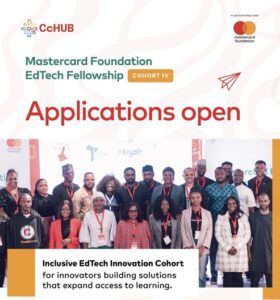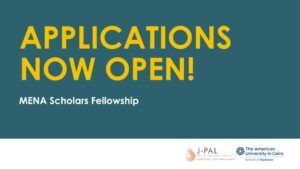The Global Water Partnership (GWP) is an intergovernmental organization established in 1996 to support countries in their efforts to implement more equitable and sustainable management of their water resources. The GWP network spans 13 regions with 2,400 institutional partners in 158 countries. The global secretariat of GWP is based in Stockholm, Sweden. The GWP Africa Coordination Unit, based at GWP Southern Africa (GWPSA) in Pretoria, South Africa, coordinates GWP Africa programs across the continent. In addition, GWPSA hosts the GWP global theme on climate resilience, and is charged with providing global strategic leadership to, and coordinating the implementation of, the GWP strategy on climate resilience.
CONTINENTAL AFRICA WATER INVESTMENT PROGRAMME (AIP)
The Assembly of the African Union (AU) Heads of State and Government have formally adopted the progressive Continental Africa Water Investment Program (AIP), during its 34th Ordinary Session, held on 7th February, in Addis Ababa, Ethiopia.
The goal of the AIP is to transform and improve the investment outlook for water security and sustainable sanitation for a prosperous, peaceful and equitable society. The objective is to enhance job creation through gender-sensitive investments in water security, industrialization, and climate-resilient development.
The AIP was adopted as part of the second phase of the Africa Union Development Agency’s Programme for Infrastructure Development in Africa Priority Action Plan (PIDA-PAP 2). The PIDA PAP 2 is a strategic portfolio of projects proposed by Regional Economic Communities and AU Member States for implementation between 2021 and 2030, led by the African Union Development Agency (AUDA-NEPAD).
The need for the AIP was first identified by the High-Level Panel on Water, co-convened by the United Nations (UN) and the World Bank in 2016. The programme was developed following a joint commitment on its implementation by the African Union (AU), AUDA–NEPAD, the AfDB, the African Ministers’ Council on Water (AMCOW), the Infrastructure Consortium for Africa (ICA), and GWP in 2018.
In February the following year, the Governing Council of AMCOW adopted a decision for the transformation of Africa’s water investment outlook through increased partnerships and implementation of the AIP. In December 2020, as part of the second phase of PIDA, the AIP was validated by Africa’s Infrastructure Ministers as part of the first extra-ordinary meeting of the AU Specialized Technical Committee on Transport, Intercontinental and Interregional Infrastructures, Energy and Tourism organized by the African Union Commission (AUC) in collaboration with AUDA–NEPAD, the AfDB, and the UN Economic Commission for Africa. The AIP was adopted by AU heads of states in February 2021.
Over the next ten years, the AIP is expected to leverage and influence USD $30 billion in climate-resilient Sustainable Development Goal 6 water investments and create at least 5 million jobs. The programme is aligned to the goals of PIDA-PAP 2 to accelerate construction activities, job creation, and also boost industrialisation and trade.
The AIP will accelerate investment into climate-resilient regional, transboundary, and national water infrastructure – such as dams, water transfer systems, irrigation systems, water management information systems, water supply, and sanitation infrastructure – which are critically needed to meet Africa’s growing socio-economic needs.
The AIP is implemented through three support programs:
- AIP Transboundary PIDA Water Investments
- AIP Water Climate Development and Gender Investments
- AIP SDG Water Investments
GWP-AIP YOUTH LEADERS FELLOWSHIP
The GWP-AIP Youth Leaders Fellowship aims to support and empower young people in driving the transformation required to improve the investment outlook for water security and sustainable sanitation in Africa. Nurturing youth through this expanding internship programs helps to develop the skills and experience needed for both traditional and new jobs. Ultimately, investing in youth will not only transform their lives but will also transform societies, nations, and the continent, helping to break intergenerational poverty, address inequalities, and create a stable, peaceful and prosperous Africa. GWP is, therefore, providing young female and male youth leaders with an opportunity to acquire exceptional skills and competencies that will pave a career path and develop leadership potential through this fellowship.
Selected fellows will be placed in each of the five AIP WACDEP-G pilot countries (Zambia, Uganda, Cameroon, Tunisia, and Benin) and in other countries where the AIP implementation has commenced, as well as in GWP regional offices in Southern, East, West and Central Africa, and the Mediterranean.
During their fellowship, the fellows will receive mentorship, technical support, and training from the respective supervisors. They will learn by supporting the activities of the AIP support program under the guidance of GWP personnel. In addition, the fellows will undergo an induction course aimed at increasing their understanding of AIP, GWP operations, and development approaches and frameworks for analyzing different dimensions of development and management of gender-responsive, climate-resilient development.
ELIGIBILITY
Applicants must meet the following criteria to be eligible for the fellowship:
- A Masters degree, at least, in fields such as water, climate, environment and natural resources, gender, and energy studies, or in any discipline that is relevant to GWP work. PhDs are advantageous.
- General knowledge and understanding of water resources management.
- A solid understanding of international development, gender, water security, environmental management, climate change, and climate change adaptation.
- Fluency in English. Additional knowledge of languages such as French and Portuguese are desirable.
- A person living in one of the AU members states, and aged 35 years or younger on March 31, 2021.
OBJECTIVES OF THE FELLOWSHIP
The fellows will develop skills and enhance their knowledge by providing support to the implementation of the portfolio of projects under the three AIP support programs and will work under the guidance of the team members of the AIP support programs in the GWP regions, with coordination from the GWPSA Africa Coordination Unit.
Fellows will also provide support to AIP and other programme areas that require communications and knowledge management to enhance their communication skills.
DEVELOPMENT OPPORTUNITIES OF THE FELLOWSHIP
Under the direct supervision of the respective AIP support program personnel, the fellows will have the opportunity to be involved in the following:
- Support project implementation by contributing to specific deliverables as agreed with the programme/project leaders.
- Conduct background studies in the thematic priority areas that will be determined jointly by the specific programme/project leader (supervisor) and the fellow.
- Document best practices, lessons learned, and experiences on key thematic areas of AIP and GWP.
- Provide monitoring and evaluation support, for example, to the recording and processing of key project activities or events for weekly reporting, and information collection and sharing.
- Provide support to meetings, workshops, conferences and trainings organized, and support youth-related initiatives within their country/region.
- Provide assistance to the GWP regional and country support functions.
- At the end of the fellowship, the fellow will produce the following:
- A report on the thematic priority areas that shall be determined jointly by the supervisor and the fellow.
- An overall report on the experiences gained, challenges faced, and reflections on areas that need improvement for managing future fellowships. The report should contain reflections and recommendations of possible solutions to the challenges identified.
At the end of the placement, a fellowship certificate will be issued by GWP and its collaborating partners under the AIP, along with an official letter of recommendation.
DURATION OF THE FELLOWSHIP
The duration of the fellowship will be between six and nine months until December 31, 2021. Due to the Covid-19 restrictions at present, fellows need to be prepared to live close to a GWP office. GWP will pay for internet access, if the fellow needs to work remotely and perform their tasks online.
REMUNERATION
GWP will provide a small stipend to the fellows. GWP will pay for accommodation and travel expenses, if any project-related travel is required. Fellows are entirely responsible for their own living costs such as groceries and health insurance. However, they will be provided with operational tools, such as a laptop, for use during the period of the fellowship.
APPLICATIONS
Interested applicants that meet the above requirements are invited to submit their curriculum vitae with a one-page cover letter not later than 31 March 2021.
- Applications are accepted only in English and only through the online platform: https://gwpsanpc.bamboohr.com/jobs/view.php?id=37
- Female candidates meeting the eligibility criteria are particularly encouraged to apply.
- Applicants must be lawfully eligible to reside in the country of appointment. Applicants must, within the application, state their preferred duty station from the list below.
Fellows will be placed in the following duty stations.
- Lusaka, Zambia
- Entebbe, Uganda
- Yaoundé, Cameroon
- Tunis, Tunisia
- Cotonou, Benin
- Pretoria, South Africa – GWP Southern Africa
- Entebbe, Uganda – GWP Eastern Africa
- Ouagadougou, Burkina Faso – GWP West Africa
- Yaoundé, Cameroon – GWP Central Africa
- Athens, Greece – GWP Mediterranean
To view this vacancy in French, please click here.
Application Deadline: 31 March 2021.
For More Information:

